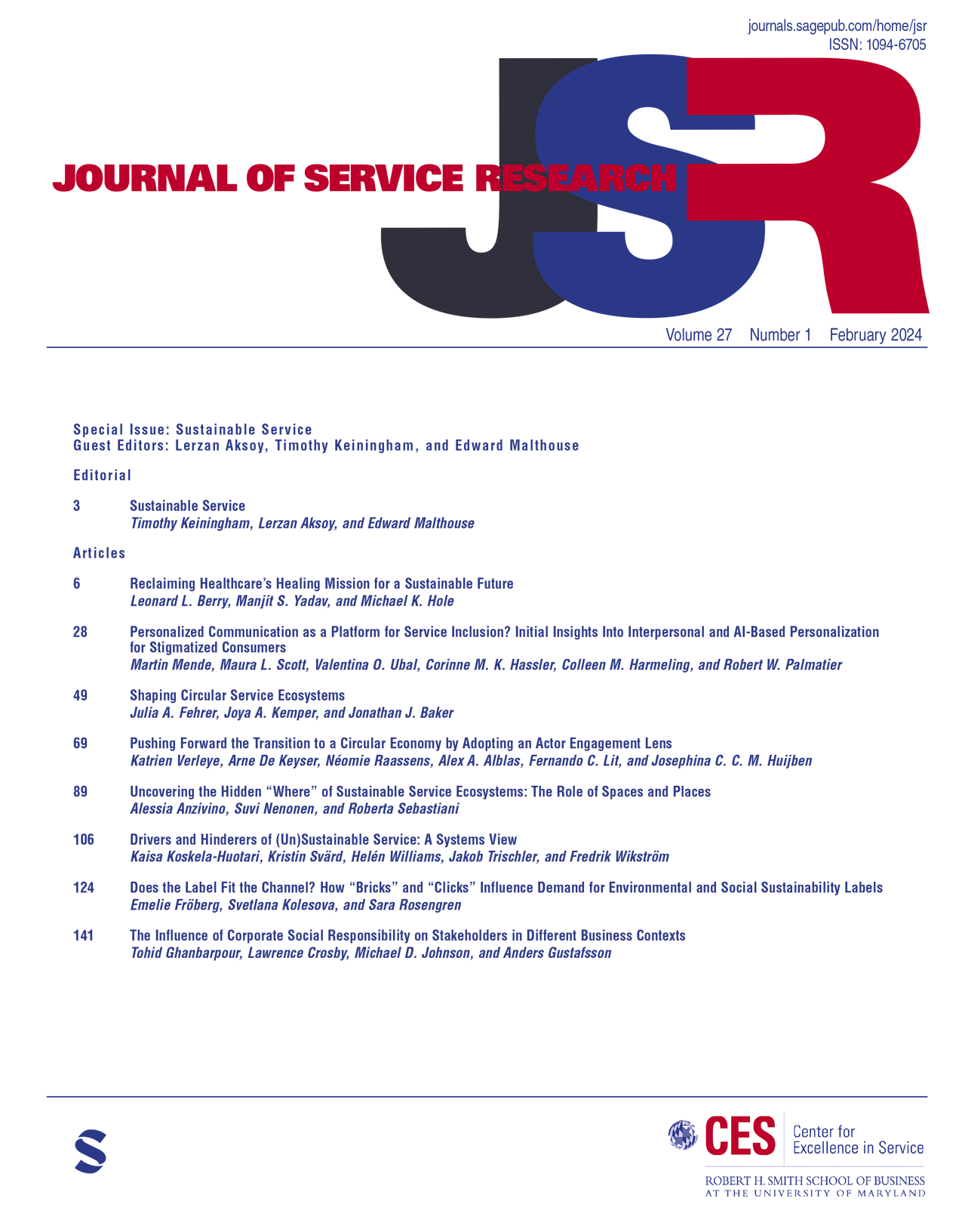了解在线食品福利订购传播中的鸿沟:服务生态系统方法
IF 8.6
2区 管理学
Q1 BUSINESS
引用次数: 0
摘要
尽管在大流行病期间,消费者更频繁地使用网上杂货购物来限制接触 COVID-19 病毒的机会,但一些联邦营养援助计划的参与者却无法选择在网上兑换他们的食品福利。一些零售商正在为妇女、婴儿和儿童特别补充营养计划(WIC)的参与者进行网上食品福利订购的试点测试,该计划是美国最大的联邦营养援助计划之一。研究 1 将一个州 WIC 机构的行政数据与一家连锁杂货店的在线订购数据联系起来,通过实证研究估算了在线食品福利订购在 WIC 参与者中的传播情况,考察了 COVID-19 大流行相关因素、商店策略和个人特征对传播过程的影响,并揭示了传播鸿沟的存在。研究 2 是一项定性研究,对 WIC 参与者和商店员工进行了访谈。研究建立了一个服务生态系统框架,以解释鸿沟是如何形成的,以及不采用是如何发生的。对大流行病期间传播鸿沟的回顾性研究为如何跨越鸿沟并改善 WIC 参与者的食品福利提供了重要建议。本文章由计算机程序翻译,如有差异,请以英文原文为准。
Understanding the Chasm in the Diffusion of Online Food Benefit Ordering: A Service Ecosystem Approach
Although consumers used online grocery shopping more frequently to limit exposure to the COVID-19 virus during the pandemic, the participants of some federal nutrition assistance programs lacked the option to redeem their food benefits online. Some retailers were pilot-testing online food benefit ordering for the participants of the Special Supplemental Nutrition Program for Women, Infants, and Children (WIC), one of the largest federal nutrition assistance programs in the United States. Linking the administrative data from a state WIC agency with the online ordering data from a grocery store chain, Study 1 empirically estimates the diffusion of online food benefit ordering among WIC participants, examines the influence of the COVID-19 pandemic-related factors, store strategies, and individual characteristics on the diffusion process, and unveils the existence of a diffusion chasm. Study 2 is a qualitative study in which WIC participants and store employees were interviewed. A service ecosystem framework is developed to explain how the chasm was formed and non-adoptions occurred. The retrospective examination of the diffusion chasm during the pandemic provides important recommendations regarding how to cross the chasm and improve WIC participants’ food well-being.
求助全文
通过发布文献求助,成功后即可免费获取论文全文。
去求助
来源期刊

Journal of Service Research
BUSINESS-
CiteScore
20.30
自引率
6.50%
发文量
28
期刊介绍:
The Journal of Service Research (JSR) is recognized as the foremost service research journal globally. It is an indispensable resource for staying updated on the latest advancements in service research. With its accessible and applicable approach, JSR equips readers with the essential knowledge and strategies needed to navigate an increasingly service-oriented economy. Brimming with contributions from esteemed service professionals and scholars, JSR presents a wealth of articles that offer invaluable insights from academia and industry alike.
 求助内容:
求助内容: 应助结果提醒方式:
应助结果提醒方式:


